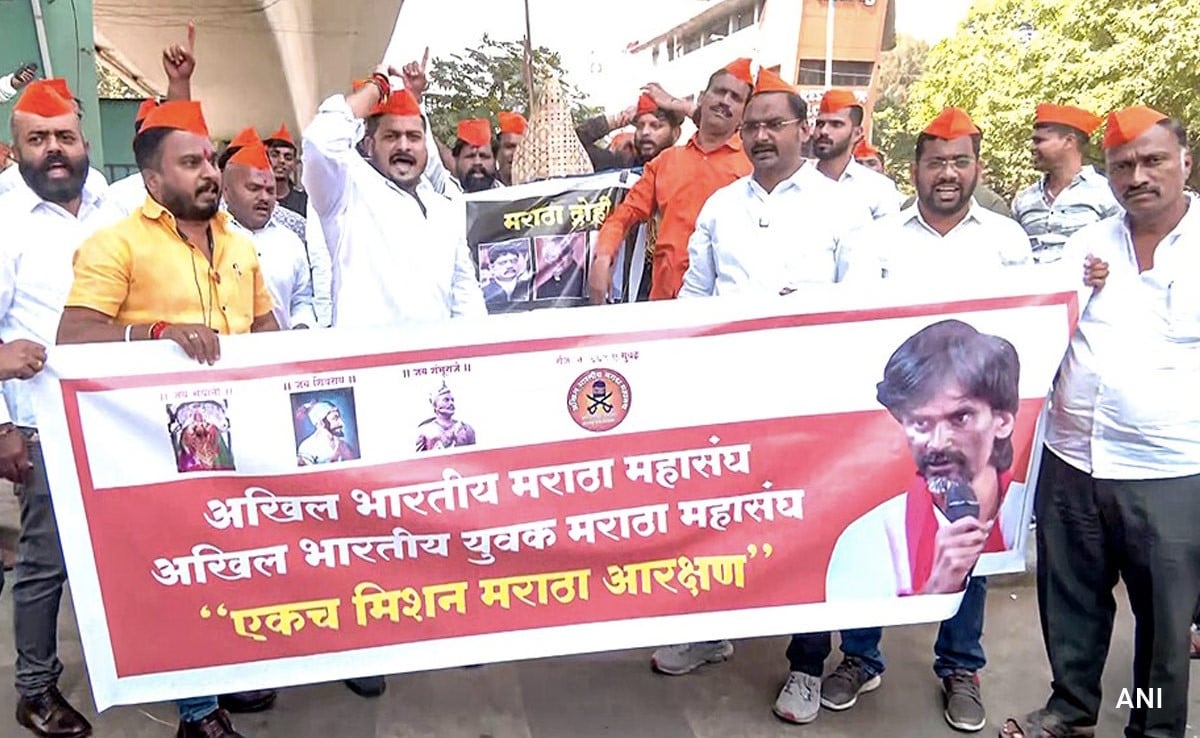
The push for Maratha reservations is not new and has been going on for four decades
Mumbai:
The fresh wave over the Maratha quota demand in Maharashtra has once again put the spotlight on the complex politics of the reservation. Pro-Maratha quota protesters vandalised the house of Maharashtra lawmaker Prakash Solanke’s home in Beed district and set it on fire Monday morning.
The angry mob also targeted an office of the Nationalist Congress Party (NCP), prompting the authorities to tighten the security in Beed and parts of the Marathwada region amid the renewed violence.
Chief Minister Eknath Shinde, who chaired an all-party meeting today to discuss the fresh wave of statewide protests, said the Maharashtra government is in favour of the Maratha quota. Mr Shinde said that reservation should be given to the Maratha community without tampering with the existing quotas of other communities in the state.
The meeting which was attended by NCP veteran Sharad Pawar, and Congress leader Ashok Chavan among others passed a unanimous resolution to improve the law and order situation in the state.
However, the demand for Maratha reservations is not new and the push for it has been going on for four decades. Here, we chart the Maratha quota issue over the years.
When Did the Maratha Quota Protests Start?
Marathas, who constitute nearly 33% of the state’s population, have been demanding the reservation in education and government jobs.
It was in the year 1981 when the state saw its first protests demanding the Maratha reservation under the leadership of the Mathadi Labour Union leader Annasaheb Patil.
The community has been seeking Kunbi caste certificates for Marathas which will enable their inclusion in the OBC category for reservation. Kunbis, who are associated with agriculture, are grouped under the OBC (Other Backward Classes) category in Maharashtra.
In 2014, when the Congress was in power in the state, the government brought an ordinance pronouncing 16 per cent reservation to Marathas. The Maharashtra government gave its nod to the Maratha quota under a special provision in 2018- Socially and Educationally Backward Class Act.
High Court Verdict In 2019
In June 2019, the Bombay High Court upheld the constitutional validity of the Maratha quota. The court reduced it to 12 per cent in education and 13 per cent in government jobs.
Two years later, the Supreme Court struck down the provisions of Maharashtra law providing reservation to the Maratha community, which granted reservation to the Maratha community, for violating the 50 per cent quota limit.
In 2022, the Supreme Court upheld the 10 per cent quota for the Economically Weaker Sections. In April this year, the Supreme Court turned down Maharashtra’s government review plea.
In 2023
In the wake of the recent flare-ups, former Chief Minister Uddhav Thackeray demanded that the centre resolve the issue of the Maratha reservation by calling a special session of Parliament.




